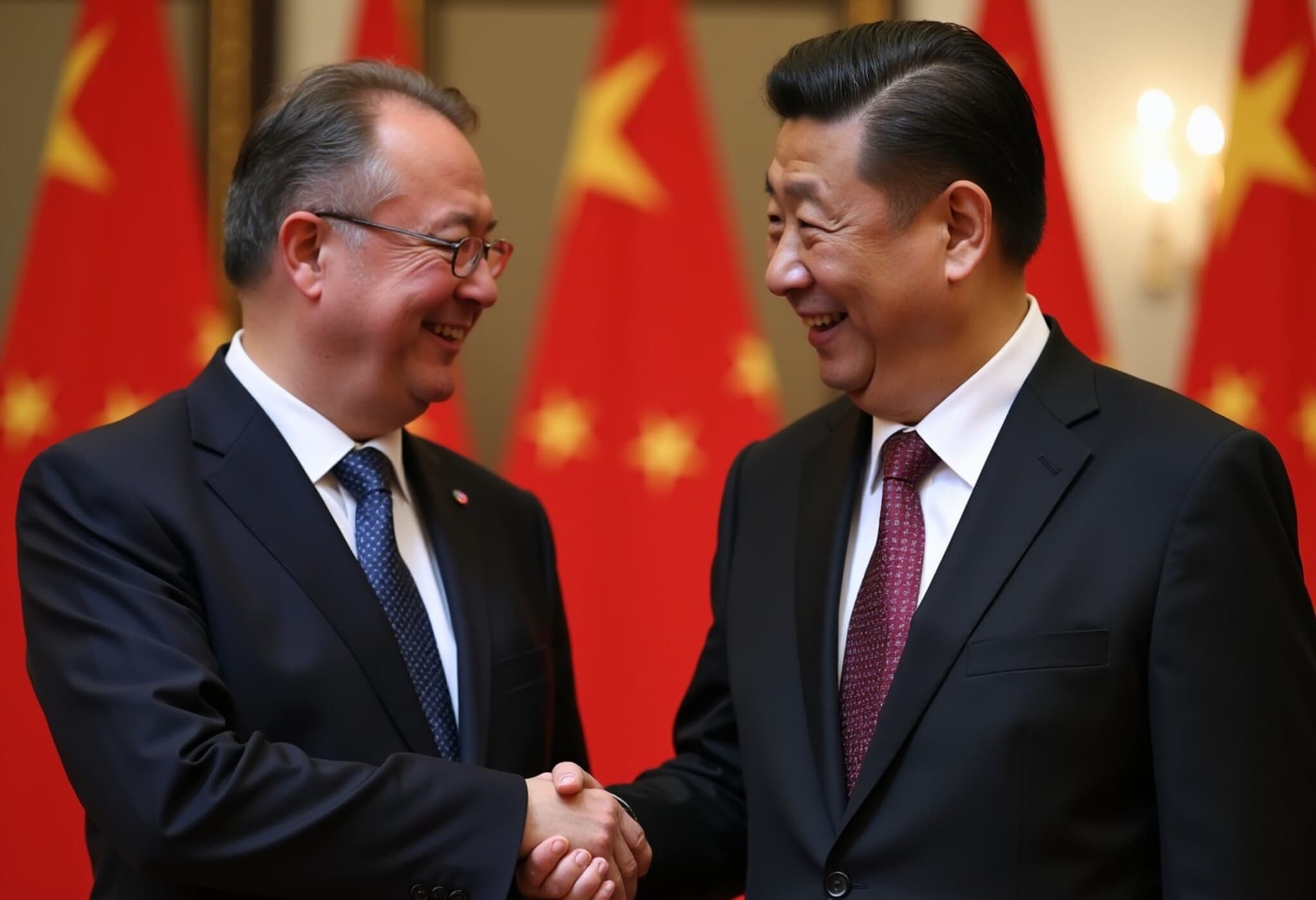European AI Investment Faces Uncertain Future Amid Regulatory Concerns
Börje Ekholm, CEO of telecom giant Ericsson, issued a candid assessment of Europe's approach to artificial intelligence (AI), highlighting regulatory measures as a potential stumbling block for innovation and investment across the continent.
Regulation Threatens Europe’s AI Ambitions
In an exclusive conversation on CNBC's "Europe Early Edition," Ekholm expressed unease over the current regulatory environment surrounding AI in Europe, calling it "concerning" and urging policymakers to consider freezing implementation of restrictive rules. He suggested that the European Commission pause for a strategic reassessment of AI regulations to avoid hampering growth in this pivotal technological arena.
"AI might arguably be the most fundamental technology of our time," Ekholm remarked, underscoring Ericsson’s own commitment through significant AI-focused investments, including a dedicated development center in Sweden. Despite Europe's high aspirations to lead in AI, he cautioned that tangible progress seems lacking beneath these ambitions.
Why Europe Risks Falling Behind
Highlighting a critical nuance, Ekholm pointed out that while heavyweights in the U.S. and China have surged ahead in building base AI infrastructure—like large language models and computing frameworks—the true future value lies in the innovative applications running on top of this infrastructure. "The race on computer infrastructure has maybe already happened," he noted, "but the competition for application innovation is still wide open."
This perspective raises important questions for European policymakers: will overregulation delay the emergence of those groundbreaking applications, effectively ceding ground to global competitors? And how might this regulatory hesitation affect investor confidence, the lifeblood of technological development?
Broader Market Context
Ekholm's concerns come in the backdrop of a mixed European market day. While Ericsson's shares dipped 3.9% following an earnings report that, despite beating profit expectations, revealed softer sales affected by currency headwinds, broader European markets showed resilience. The FTSE 100 crossed a landmark 9,000-point threshold intraday, signaling underlying investor optimism.
- The Stoxx Europe Technology index rebounded 1%, buoyed partly by chipmakers' optimism on resumed sales to China.
- Other European financial news shows a UK housing sector under pressure with Barratt Redrow shares dropping 8%, while retail giant B&M shares fell by 7.1% despite a modest revenue rise.
Geopolitical and Economic Crosscurrents
Additionally, geopolitical uncertainties, including looming U.S. tariffs on European goods and fluctuating trade relations, cast shadows over investment climates. Yet companies like Ericsson have strategically diversified manufacturing footprints, including establishing facilities in North America to mitigate risks.
Concerning Europe’s economic outlook, the UK faces mounting challenges with a widening budget gap, slowing growth, and government debt nearing 100% of GDP. This unsettled environment further complicates the investment equation for cutting-edge technologies like AI.
Expert Insight: Balancing Innovation and Regulation
From a policy standpoint, Ekholm’s calls echo a broader debate unfolding across Europe about AI governance. How to safeguard ethical standards, individual privacy, and security without stifling innovation remains a delicate balancing act. The European Union’s ambition to be a global AI leader must grapple with setting regulations that are robust yet flexible enough to encourage experimentation and growth.
Economists and digital strategy experts caution that overly prescriptive rules risk pushing startups and researchers to more permissive jurisdictions, undermining Europe's competitiveness. Conversely, a regulatory vacuum could allow unchecked technological deployments with social risks. The middle ground requires nuanced, evidence-based policymaking, stakeholder engagement, and adaptive regulatory frameworks.
Looking Ahead
As the AI revolution accelerates worldwide, Europe stands at a crossroads. Industry leaders like Ekholm urge a pragmatic pause on regulation to reassess and fine-tune the approach, ensuring the continent capitalizes on its rich talent pool and innovative capacity without being shackled by premature or rigid rules.
For investors, policymakers, and innovators alike, the unfolding narrative in Europe offers both caution and opportunity. The continent’s future as a vibrant AI hub will hinge on crafting policies that nurture creativity and growth while keeping technology aligned with societal values—a challenge that demands both vision and vigilance.
Editor’s Note
Ericsson's CEO's pointed critique serves as a timely reminder that policymaking in emerging technologies must carefully weigh regulation against innovation imperatives. As AI continues reshaping industries, Europe's regulatory decisions in the coming months could have far-reaching consequences—not only for regional tech leadership but for global digital competitiveness. Readers are invited to consider: How can Europe best foster AI innovation while upholding ethical standards? What lessons do other global AI hubs offer? These questions will shape the region's digital destiny.



















